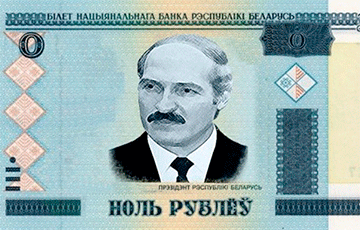It's All Over
78- Aliaksandr Abukhovich, Belgazeta
- 21.01.2019, 10:30
- 125,262

"The Belarusian model" has finally bankrupted.
For two weeks already mass media have been covering Belarusian-Russian relations. Moreover, given the pedaling of the topic by Lukashenka, the discussion is at times clearly scandalous both in Russia and Belarus. And what is really happening?
There is nothing new. "We can't be bent over!" and "Godfather" were voiced: our explanations for oil and gas miss diplomatic delicacies. However, this is the first time when Moscow's pressure is so systemic. The trust issue is also raised (which reduces chances of our government to make a promise and not to meet it), as well as the implementation of the Union agreement, common currency (no maneuvers with the printing press are affordable), changes in the management system of the country.
And the price is the compensation for the tax maneuver and promises of preferential prices for gas and oil. In previous years Russia's support cost much less. But nothing lasts forever. All outside experts, from the IMF to EEU structures, insisted on reforms. Our government just ignored those demands hoping to get off with vague promises and not to keep them later.
In the 2000s, despite the active eating away of the Soviet legacy, the difficulties in the Belarusian economy were escalating. Yes, we also had a fixed capital renewal, but its rate was much lower than that of our competitors. Yes, Russia and Ukraine received giant inflows of natural rents due to growing prices, but their growth was mostly of recovery nature after the collapse of the 90s. Some foreign investments also contributed to the growth, but only a little. Thus, the rate of fixed capital renewal amounted to 0.7% per year in Russia, while in Ukraine and Belarus it was not much higher, while in the EU and China it reached 14-15% per year.
As a result, by the global crisis, the average technical level of enterprises of Russia, Ukraine and Belarus had levelled off with growing gap between them and their competitors. There were major exceptions: Belarusian enterprises were trapped in the obsolete "Belarusian model" and had no access to capital sources.
Those very exceptions led to a growing loss of competitiveness in the Russian and Ukrainian markets. However, they all kept growing uncompetitive even in the domestic markets being pressured by Western and Chinese competitors. At that, both Russia and Ukraine experienced overaccumulation of trade and financial capital.
In 2011 the "Belarusian model" finally went bankrupt. It became clear that the bankruptcy of major part of Belarusian enterprises was only a matter of time. Since that moment debts and speculations have become the backbone of the Belarusian economy. The country has had neither a simple anti-crisis program, nor a medium-term development program.
The problem is that the size of the Russian oil and gas support ($3-4 billion per year) almost corresponds to self-service of our government and those attributes of the government that uphold the illusion of stability in the country. Russia does not finance the economy of Belarus, but the government of it. It's as the same as giving an alcoholic a bottle so that he didn't bother.
And money for more than a bottle is useless: he'll drink it away. In this regard, both the Kremlin's position during the negotiations in December 2018 and the position of the IMF are almost moral: show us the way out of the crisis, and we will allocate money. Only if we like your plans. So, we have all the problems are not outside, but inside the country.
But morality plays minor role in economic relations, and especially in relations between states. Yes, the Kremlin's pressure is justified by the mediocrity of the economic policy of Belarus, but the situation in Russia is less better: the difference is only in a high inflow of natural rents, the efficiency of other sectors of the economy is steadily declining. It is unlikely that the introduction of an economic policy similar to the Russian one in Belarus will be able to solve some of our problems. Rather, it will only aggravate them.
The Kremlin often complains that post-Soviet countries are increasingly looking for solutions to their problems outside Russia. But this is quite natural. Russia cannot serve as a market for remains of outdated Soviet enterprises (Russia itself needs these niches), nor as a supplier of technologies, nor as a source of capital for modernization of economies (in addition to money, the competence of an investor is needed) for post-Soviet countries. Benefits on energy prices and the possibility of interstate loans alone are not enough.
Our authorities refuse to recognize both the non-viability of the Belarusian economy in the current structure and the fact that the "Belarusian model" has long outlived itself. We awaited that using 'soft power' (denial of loans) we are being forced to reform from outside (Russia, IMF, EDB). Of course, we have enough sovereignty to withstand this pressure. But, as they say, "no one makes us evolve, survival is voluntary".
Aliaksandr Abukhovich, Belgazeta









